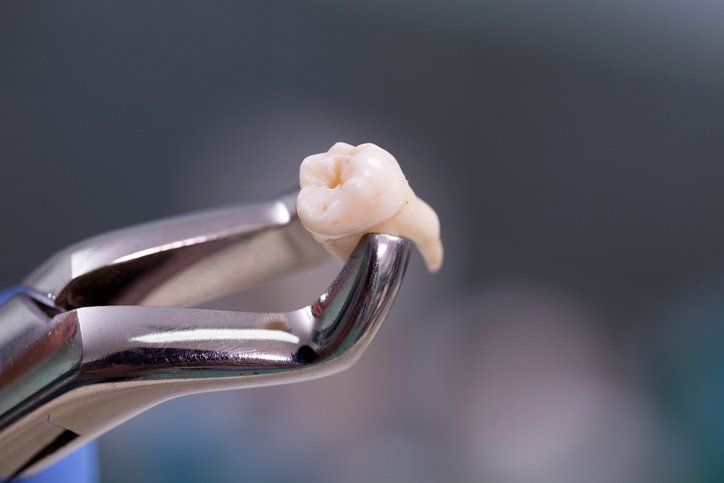WISDOM TEETH
Generally, we have two molars at the end of each quadrant of our mouth. Wisdom teeth are the last set of molars, which only start to erupt at the age of 16 to 18.
Most of us have between one and four wisdom teeth, while some people may have none. Wisdom teeth that are properly positioned and healthy do not cause any problems.
However, in some cases, when wisdom teeth are not properly positioned or not fully erupted, problems arise.

Common Problems with Wisdom Teeth
- Impacted (stuck) against the bone, gums or adjacent teeth
- Formation of cysts
- Food trap
- Infection
- Swell
- Pain
- Tooth decay of the adjacent tooth
To watch video, kindly tilt your phone to landscape mode for best viewing experience.
An impacted wisdom tooth refers to a tooth that did not fully emerge into its ideal position. Most people experiencing this problem do not have enough space in their jaw for the wisdom tooth to erupt, thus causing it to become stuck in the jaw.
Food impaction is the most common problem associated with an impacted wisdom tooth. When food becomes trapped around an impacted wisdom tooth and cannot be cleaned properly, it can lead to infection and swelling in the gums. Pain starts to kick in, and the tooth adjacent to the wisdom tooth may be affected and develop decay.
If you experience any of the above-mentioned problems with wisdom teeth, we recommend consulting a dentist and considering their removal to prevent further complications in the future.
Through a thorough examination and X-ray radiographs, patients can gain a better understanding of their current dental condition, and our dentists can recommend suitable treatment options.
When is the best time to remove wisdom teeth?
It is recommended to remove the wisdom teeth as early as possible, usually in their early twenties, when the jawbone and wisdom teeth's roots are not fully developed yet. The rate of healing is also much faster for younger patients.
How do you know if it is an extraction or surgery?
You may want to know if you will be going through extraction or if your wisdom tooth needs surgery instead. You need to take a full mouth dental X-ray so that the dentist can determine if your wisdom tooth (teeth) requires extraction or surgery.
Extraction vs surgery depends on these factors:
- The amount of space available
- Root morphology
- Level of impaction
A comfortable and stress-free option is available!
In life, we have many memories. We want to remember the good ones, while there are some that we would rather not remember. Going through a wisdom tooth surgery is one of those that you may not want to remember.
Many people get stressed out even thinking about going through the removal of their wisdom teeth, fearing the sounds of the equipment and the pressure exerted during the surgery. We totally understand that.
In Smile Design Dental Practice, we offer you an option to undergo the removal of your wisdom tooth (teeth) in a stress-free manner. The option of sedation is available. We are an accredited day surgery centre where we carry out dental procedures and surgeries under sedation. With a surgeon and an anaesthetist present throughout the treatment, we ensure your safety and comfort.
Procedures of Wisdom Tooth Extraction or Surgery
- Initial Consultation and Assessment
-
a thorough oral examination is conducted, and an X-ray radiograph is taken to determine the treatment
- Preparation - A local anaesthetic is administered to numb the surrounding tissues, while nervous patients can request sedation. Sedation is done by our anaesthetist. After the sedation and treatment procedure, you can rest in our Sedation Recovery Room until you are fit enough to leave.
- Extraction or Surgery
- If the wisdom tooth has fully erupted, extraction is the only required procedure. However, if the wisdom tooth is impacted or has not fully erupted, then minor surgery is recommended. An incision is made on the gums, allowing the wisdom tooth to be removed. Stitches are placed to hold the gums together during the healing period.
- Post-Operative Period
- The duration of the healing process largely depends on the patient's general health, the degree of infection (if any) before the procedure, and the accessibility of the wisdom tooth. Swelling and mild discomfort are normal and can be well-managed with the medication prescribed to you. A soft diet is recommended to encourage healing in the affected area.
- Review
- We will schedule a review with our doctor to ensure that your wound is healing well.
Schedule an appointment with us NOW! Call us at 6463 8588 or WhatsApp to 9815 5336
To serve you better, we are available by Appointment Only.
Please contact us to schedule an appointment.